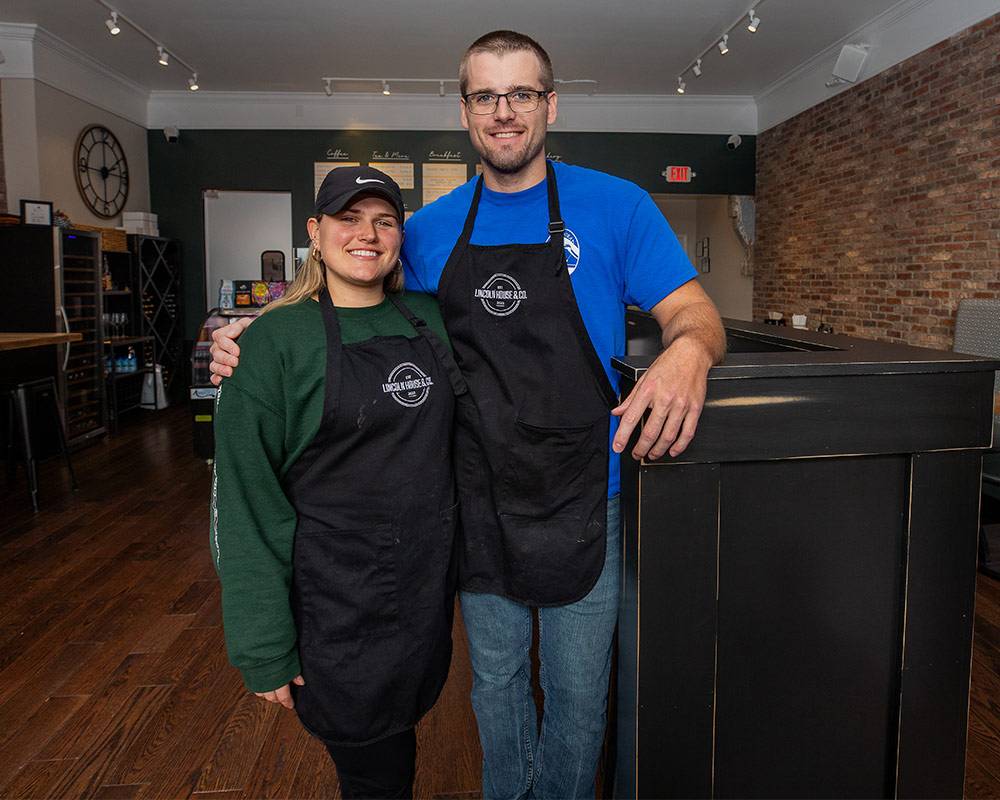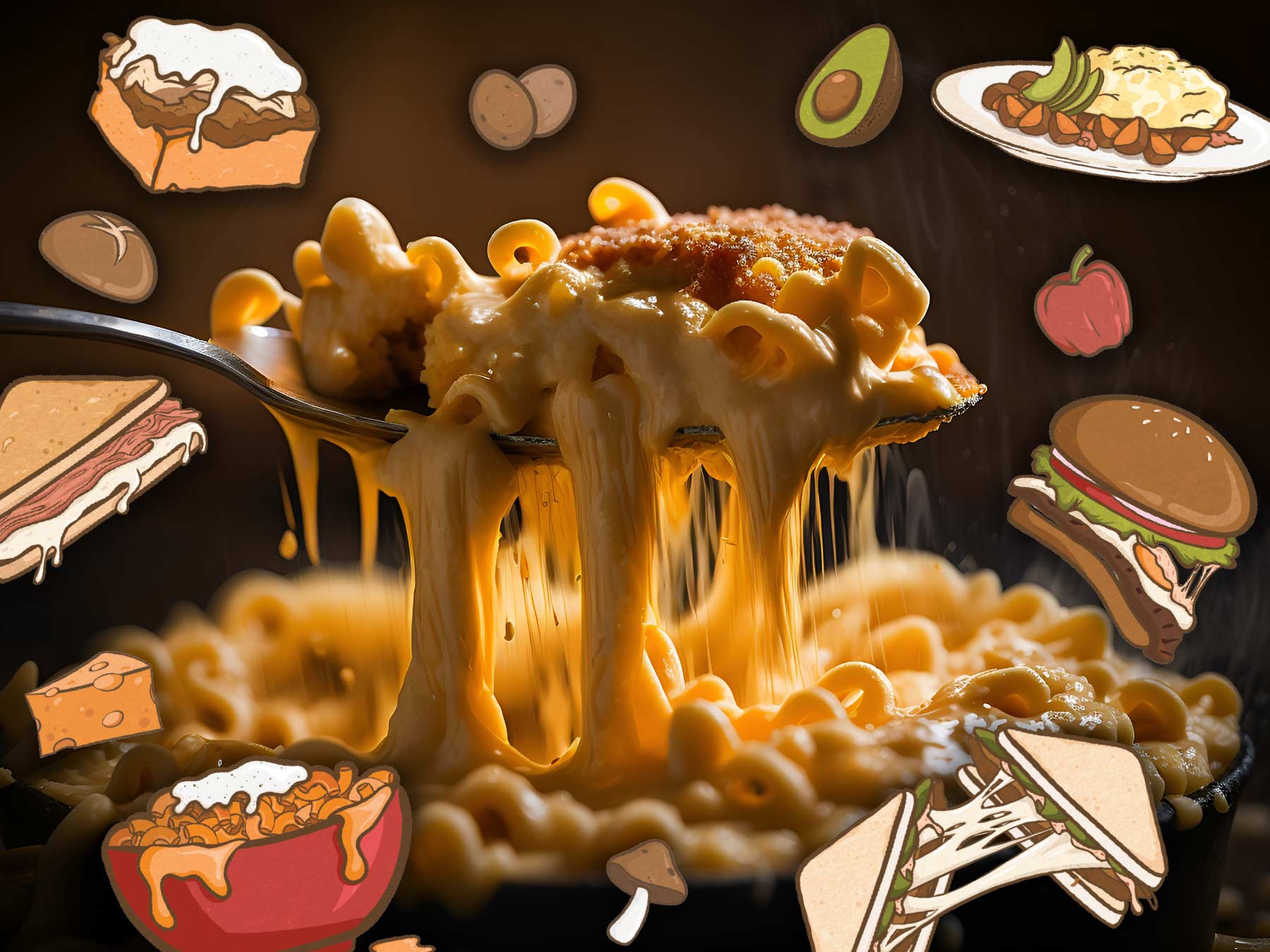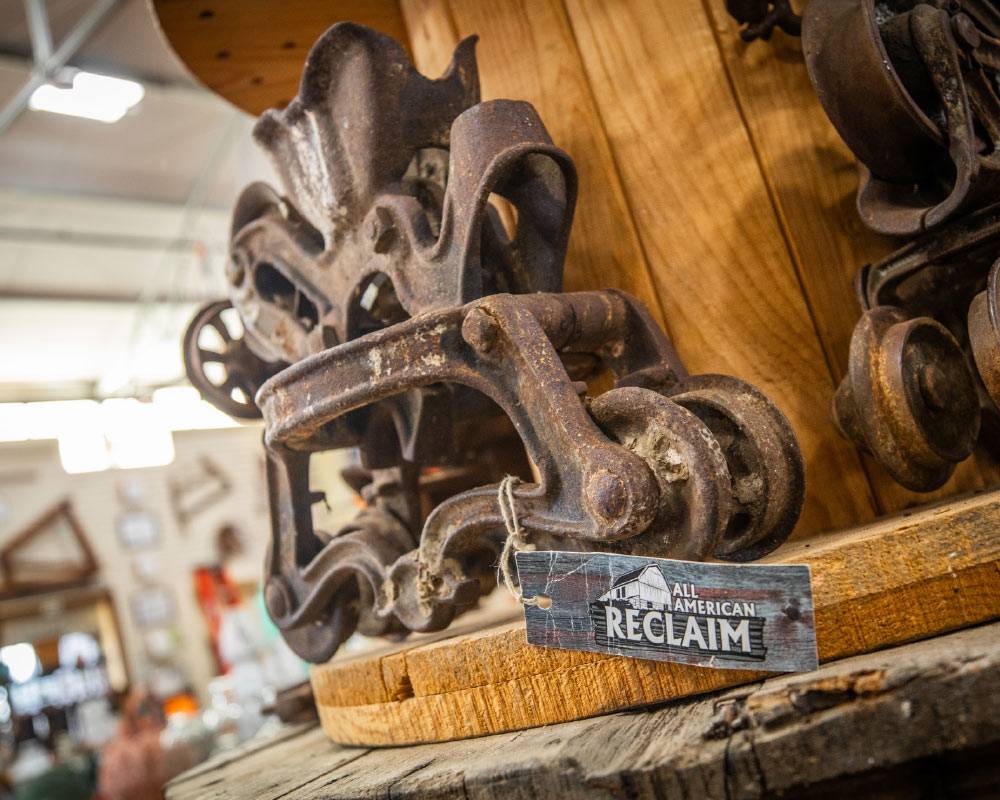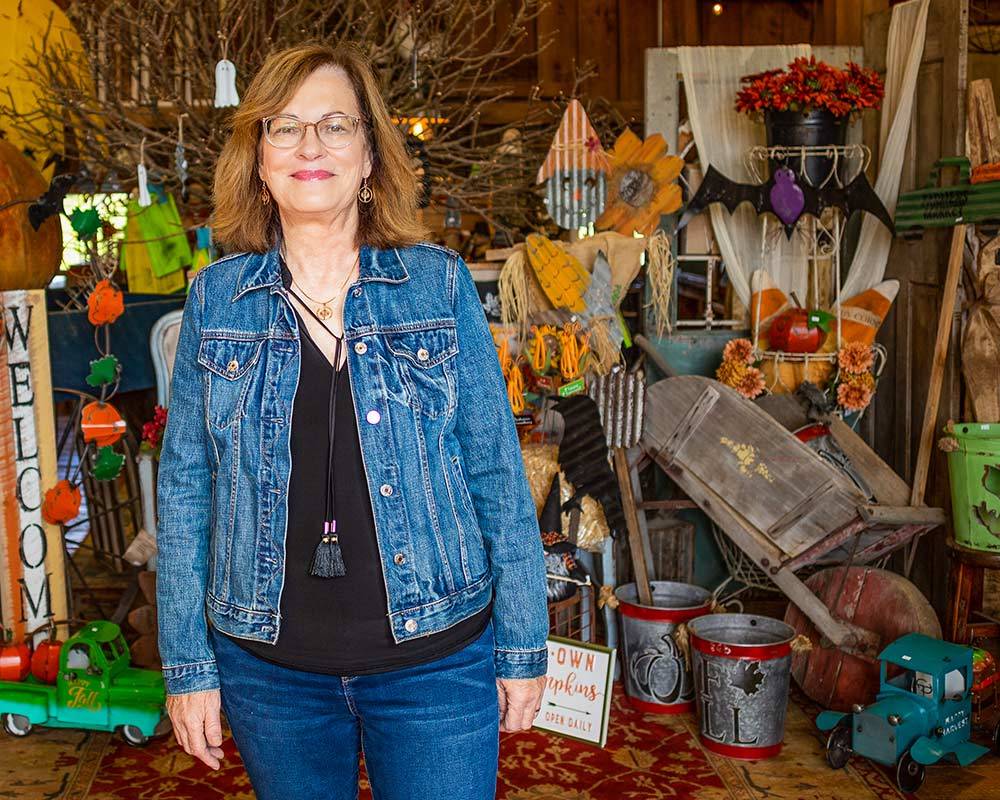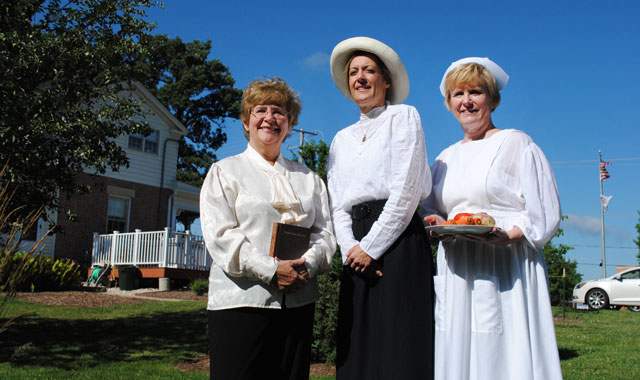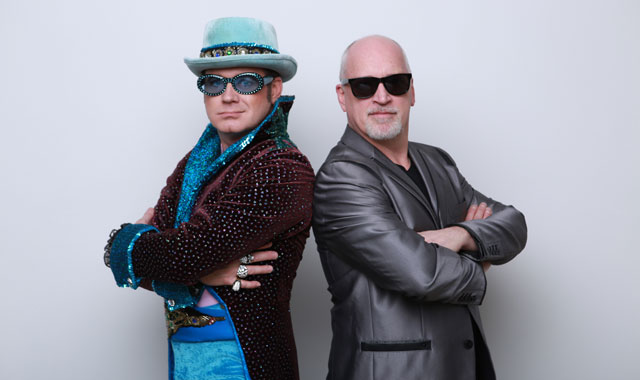In the days before television, radio and internet, McHenry County residents learned about current events and national trends during the annual Chautauqua. Travel back in time to discover why the Chautauqua at one time was the celebration of the summer.

It was an exciting time for a small town when the 28-Day Man arrived. He’d plaster posters, flyers and other marketing materials around the community in an effort to excite residents about the upcoming Chautauqua. Anticipation climbed 23 days later, when the Five-Day Man came to town with tickets to this multi-day event.
“There was a lot of excitement preceding the Chautauqua,” says Mary Ott, manager of the Colonel Palmer House in Crystal Lake. “They were popular in the late 1800s and early 1900s.”
A Chautauqua was an adult educational program featuring lecturers, musicians and entertainers. At a time before the circus and traveling festivals rode the circuit, the Chautauqua was a popular form of entertainment and an escape from everyday life. Before television and radio, millions of people across our nation’s rural communities learned about current events while simultaneously enjoying performances right in their own town.
Typically traveling from town to town, Chautauquas grew from the lyceum movement, in which organizations sponsored educational adult entertainment.
Methodist ministers hailing from the Chautauqua region of New York instigated their own Chautauquas, and the movement quickly traveled across the Midwest. Chautauquas became a popular event around McHenry County, and particularly within Crystal Lake. At the time, the county was predominantly rural.
“Crystal Lake was one of the early towns in McHenry County – it was a little bit larger, a little more formalized at that time,” Ott says. “But Chautauquas were important to many communities across McHenry County. It goes back to bringing in education, information and entertainment to a community that couldn’t support that on its own. This was a way that people learned a little bit and enjoyed themselves.”
Community Involvement
Towns that wanted to host a Chautauqua had to raise enough money to contract with an entertainment company.
“It was something the whole community bought into,” Ott says. “You couldn’t just ‘a la carte’ choose what entertainers you wanted at the Chautauqua. Communities would buy a full package from a company that brought in a specific troupe of entertainers.”
Every summer from 1914 through 1917, Crystal Lake was able to gather the funds necessary to host a four-day Chautauqua in partnership with the National Lincoln Chautauqua System, based in Chicago. Crystal Lake’s later Chautauquas, in the 1920s, were hosted in coordination with the Mutual Chautauqua Company. World War I impeded Crystal Lake from hosting Chatuaquas during the intervening years, Ott says.
“Nobody is going to ante up for entertainment when they need to make sure they have money for supporting the troops and supporting their families,” she adds. “That’s why there’s a span of about five years in between.”
In 1914 and 1915, a Chautauqua in Crystal Lake cost $700. The Crystal Lake Herald reported that more than 600 people filled a large tent for the first evening performance in 1914. Entertainment included the Luzerne Concert musicians, lecturer Mohammed Ali, the Mason Jubilee singers, Irish entertainer Alexander Corkey and Dr. Stephen Everett Crowe, who gave an illustrated lecture on the Panama Canal. On the final day of the Chautauqua, the 16-piece Brooks Symphony Orchestra performed before an estimated 1,500 people.
When the price of the Chautauqua jumped to $950 in 1916, the event almost didn’t happen. According to Ott, local sponsors were slower to commit to a higher price.
“The community wasn’t sure if they could pull those kinds of funds together, so they had that hurdle to overcome,” Ott says. “They made it happen though, thanks to community boosters and The Crystal Lake Women’s Improvement Club agreeing to handle the ticket sales.”
The community’s movers and shakers took responsibility for financing a Chautauqua. In addition, community leaders had to guarantee the sale of a certain number of tickets and provide a site for the show. In exchange, the organizing company provided advertising, marketing and, of course, a program full of educational lecturers, talented entertainers, and capable vocalists and instrumentalists.
In 1916, the National Lincoln Chautauqua Company expanded its marketing campaign to accompany the price increase. The campaign involved a 28-Day Man who arrived in town 28 days before the opening date. For three days, he worked to gain support and build enthusiasm within the community.
“He’d speak with boosters, put signs around the community, and basically just talk about what was going to occur, the dates of the Chautauqua, where it was being held – things like that,” Ott says. “It was relationship building.”
At the 1916 Crystal Lake Chautauqua, the 28-Day Man worked primarily with the Women’s Improvement Club to sell tickets to the community.
Five days before the event, a Five-Day Man came to town and handled the ticket campaign until the opening day.
“He talked to the prominent people within the community,” Ott says. “The 28-Day Man and Five-Day Man were unique aspects of advertising.
The Crystal Lake Herald also advertised the event extensively ahead of time.”
Beginning in 1915, Junior Chautauquas for children were held in conjunction with the main event. Ott says kids would participate in crafting activities, play games such as lawn tennis, and listen to their own lecturers, who typically projected a moral lesson.
“Local high school students would run these activities for kids so that parents could listen to the lectures and enjoy the music,” Ott says. “This was a way to involve the whole family at Chautauquas.”
These events provided opportunity for residents of Crystal Lake to learn what was happening in the nation, Ott says. Without mediums such as television and radio, it was more difficult to learn about national news. Outside of Chautauquas, the primary method to gain information was to read a hardbound book or newspaper, and although the paper covered local events, it faced difficulty in covering national news.
“You have to think about the time period and how higher education wasn’t really thought of,” Ott says. “If you received a high school education, you had really made something of yourself. So, when these traveling groups gave informational presentations about what was going on across the country and what was new, people were able to get information that today we get via social media and television. This was their medium.”
Re-Enacting a Chautauqua
This summer, the Crystal Lake Historical Society and Crystal Lake Park District celebrated the city’s cultural past by re-enacting the Chautauqua of 1916 that almost never occurred. The event happened at the Colonel Palmer House in Crystal Lake.
The local 1916 Chautauqua had lecturers who maintained a moralistic slant, Ott says. During the re-enactment, local historian Craig Pfannkuche portrayed Ralph Parlette, a lecturer on family-related issues. Author of “University of Hard Knocks,” Parlette motivated audiences to overcome negative experiences.
“He talked about how you can’t let life knock you down,” Ott says. “He explained how negative things can actually propel you forward.”
Several women spoke at the 1916 Chautauqua, including author Louise McIntyre and dietitian Margaret Hall.
McIntyre was known for her unique perspective on health and exercise, says Diana Kenney, president of the Crystal Lake Historical Society and executive director of downtown Crystal Lake/Main Street. Kenney portrayed McIntyre at the July re-enactment.
McIntyre lectured on health topics for 13 years, and for five years was the director of health instruction at Winona Lake Assembly in Indiana.
“I actually was able to find her book, ‘How’s Your Health,’ on eBay,” Kenney says. “What’s really cool about it is that the front talks about her perspective on health and exercise, while the back half of the book actually has pictures of her showing different exercises to improve your diaphragm and posture. Even way back 100 years ago, there was an understanding of having a healthy body.”
Kenney likes making history lessons interactive, which is why she’s enjoyed portraying McIntyre this summer.
“I want history to be more than just textbook,” Kenney says. “Louise McIntyre was a real lady ahead of her time. Most women didn’t jump into an exercise outfit like she did. I’m excited to give an interactive lesson about her so people can take home a memory.”
Ann Viger, director of planning and development with the Crystal Lake Park District, portrayed Margaret Hall, a “demonstrator of domestic science.” Hall studied at the Battle Creek Sanitarium in Battle Creek, Mich., where she learned about dietetics. Her lectures on the Chautauqua circuit focused on how to eat healthy, Viger says.
“She did speeches on what to eat, how to eat and when to eat,” Viger says. “It was new thinking at the time, but a lot of it is still widely believed today, such as the importance of fruits and veggies and nuts. The USDA put out its first nutrition recommendation that same year – 1916. Margaret Hall was a very modern woman to go out, lecture people and not be in the home.”
Musical entertainment at this summer’s re-enactment featured the Crystal Lake Community Band and the Clef Hangers barbershop quartet.
Kids experienced a junior Chautauqua by playing lawn tennis and croquet, and by enjoying a reading of “Aesop’s Fables” that used puppets to act out the story. Members of Crystal Lake’s historical society represented The Women’s Improvement Club and discussed the group’s involvement with local Chautauquas.
According to the Lincoln Chautauqua Bureau, most historians cite the rise of radio, movies and car culture as reasons for why the Chautauqua movement faded by the mid-1930s, although the Great Depression no doubt had an economic impact on organizers and audiences.
Ott believes the Chautauqua is enjoying a recent renaissance, due in part to the joys of lifelong learning.
“The reason I wanted to do this re-enactment was because this is an interesting portion of our history here in Crystal Lake,” Ott says. “With the 100-year anniversary this year, what better time than now to delve into what Chautauquas are all about? This is our opportunity to educate people about their community and what it was like here in the early 1900s.”













